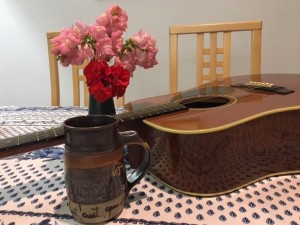 Originally published in The Catholic Times, October 16, 2016
Originally published in The Catholic Times, October 16, 2016
Yesterday I came home from work and picked the five remaining stems of tall, pink snapdragons and one red geranium. They fit perfectly into a vase purchased from a shop near the Pine Ridge Reservation, South Dakota. The dark green matte outer layer had been etched down to the pale terra cotta, creating the stair-step design that symbolizes the Black Hills, Paha Sapa, a holy place of the Lakota.
The Lakota came to mind, and the other Native Americans and supporters who gather with them in prayer and presence, again striving to protect their land, this time by protesting the construction of the Dakota pipeline.
Their struggle was one reason I needed flowers on my table last night and why I’ve stopped perusing New York Times headlines as part of my morning routine. The violence and suffering in the news is overwhelming.
Hatred, stoked by fear and ignorance, fills our national election politics. The voices of the marginalized around the world—the poor, women, LGBT people, children, refugees, and others—are rarely heard. Glacial ice-melts and extreme weather patterns call for action to address global warming, but the will to pursue alternative energy sources and lifestyle changes is lacking. My heart was worn out.
So, I picked flowers. I brewed tea and poured it into a favorite mug made by Joan Lederman, who lives in Woods Hole, creating glazes with sediment collected from the ocean floor. My mug is part of her Earth Crust/Space Dust series, and a band of its glaze contains asteroid-laden dust from 65 million years ago. I rubbed the blue sea glass that fills the thumb well on the handle, sipped Lady Grey, and let my heart soak up beauty.
Next I pulled my guitar case out from under the bed where it’s rested undisturbed for a year. A thin stack of papers lay beneath the instrument. Old and yellowed, they were covered with song lyrics and chord notations written in my hand during the 60s and 70s. I remembered them all, and my fingers quickly found their places on the strings. I played and sang, listening to my younger self celebrating the glories of an October day or a patient, hopeful love.
I heard my weary heart calling for Grace and comfort from the wind, sun, and rain after learning of the sudden death of a college friend. Many of my songs danced with Divine Mystery found “within and without, above and below,” or gave melody to psalms. Singing for an hour, I sank my heart-roots deep into that Holy Presence.
When my unpracticed fingertips became sore, I returned the guitar to its case and picked up a friend’s newly released memoir, Harnessing Courage. Despite its serious topic (Laura Bratton was diagnosed with a retinal disease at the age of 9 that eventually took her sight.), the first pages made me laugh out loud, picturing her confident, three-year-old self remembering every ballet step and leading the other, stage struck toddlers through their first dance recital.
As night came, I remembered holy ones whose feasts fall on this week’s liturgical calendar, who persevered despite their world’s ills. With the courage to challenge the status quo, St. John XXIII threw open the windows of the Church to let in fresh air, trusting the Spirit to bring renewal.
St Teresa of Avila, the great Carmelite mystic, reformer and first woman to be declared a Doctor of the Church, struggled with illness, opposition, and an investigation by the Inquisition. She defined contemplative prayer simply as a close sharing between friends and frequent time spent alone with God who loves us.
And while Madeleine Delbrêl (born in France in 1904) isn’t declared a saint, Robert Ellsberg writes about her in Liturgical Press’s Give Us This Day reflection for October 13, the date of her death. She knew that holiness could be encountered in people’s everyday life. “Each tiny act is an extraordinary event, in which heaven is given to us, in which we are able to give heaven to others.”
That’s why surrounding myself with beauty, singing, and enjoying the gifts of others was just what I needed last night. It helped me descend to my center, resting in Healing Presence, finding Grace in the moment. God refreshes the heart and provides strength to be grateful for life that is given even in the midst of suffering. As John, Teresa, and Madeleine knew, we must trust and spend time with God in whatever ways deepen our relationship. Then we will have Spirit to share and can be part of the ongoing transformation of a wounded world.
© 2016 Mary van Balen
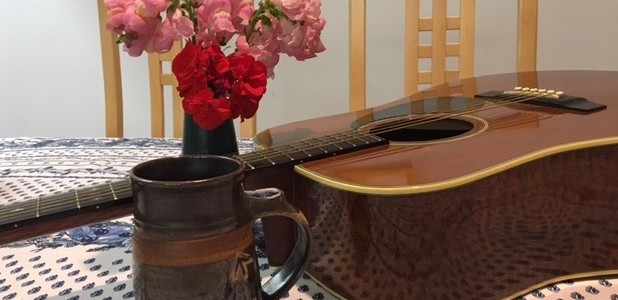
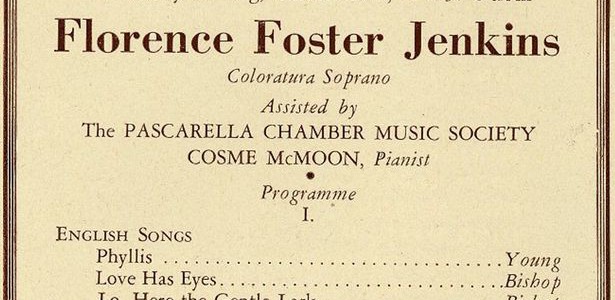
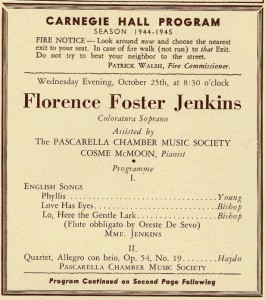
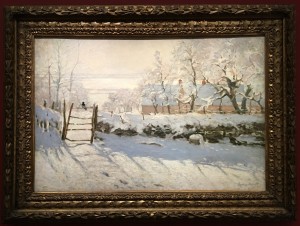
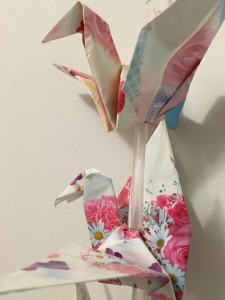
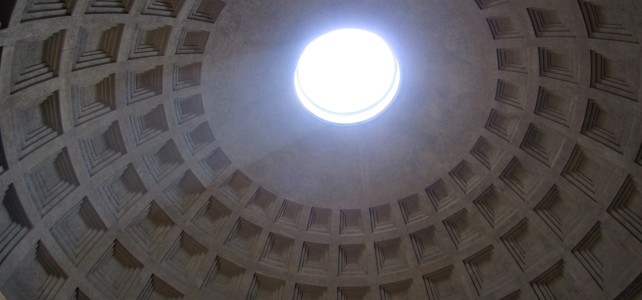
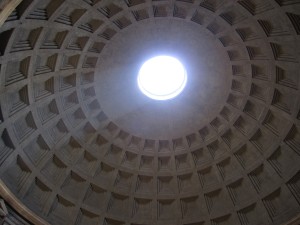
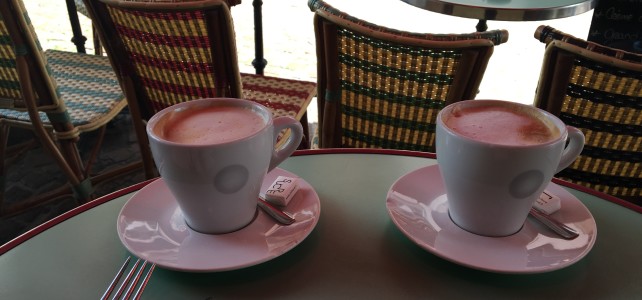
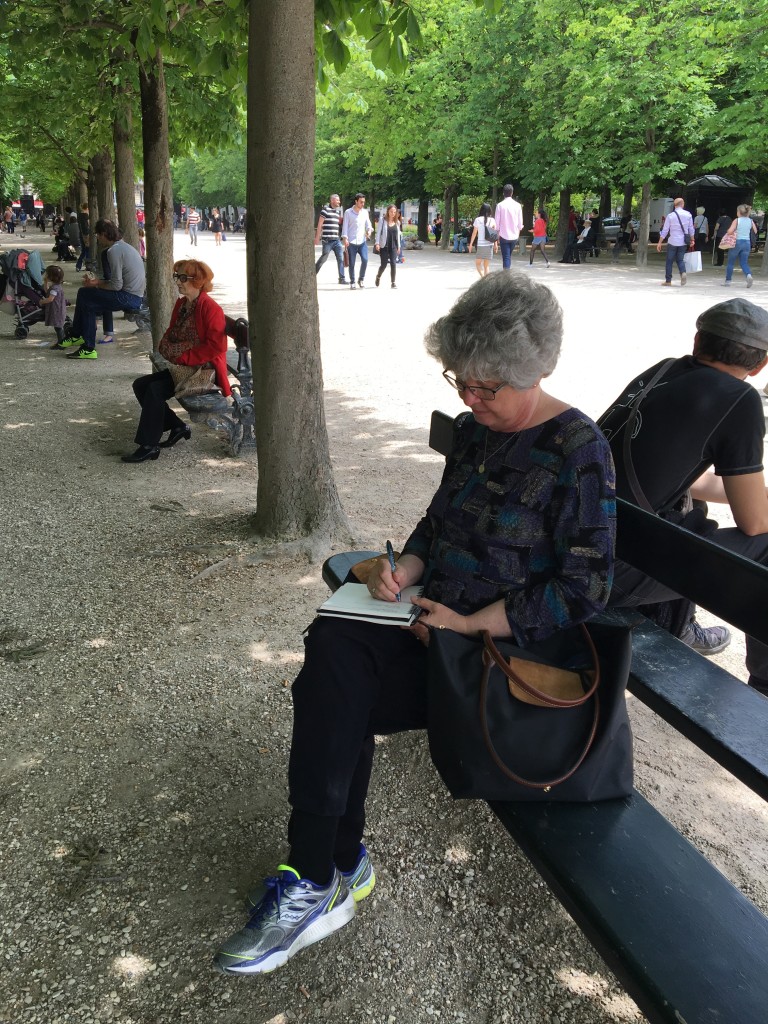
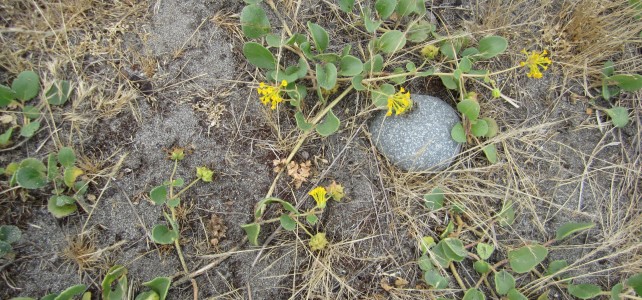
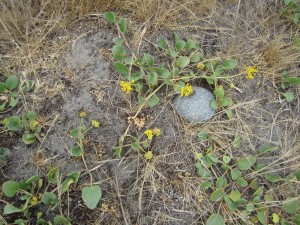
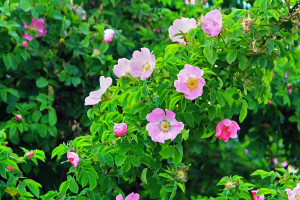 The poem is “Roses.” Oliver writes of the quest to answer life’s “big questions” and decides to ask the wild roses if they know the answers and might share them with her. They don’t seem to have time for that. As they say, “…we are just now entirely busy being roses.”
The poem is “Roses.” Oliver writes of the quest to answer life’s “big questions” and decides to ask the wild roses if they know the answers and might share them with her. They don’t seem to have time for that. As they say, “…we are just now entirely busy being roses.”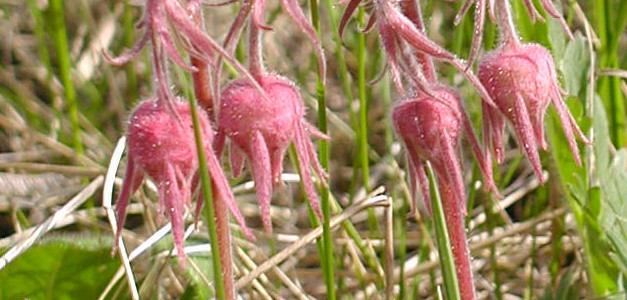
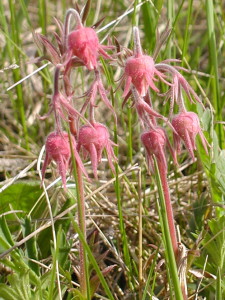
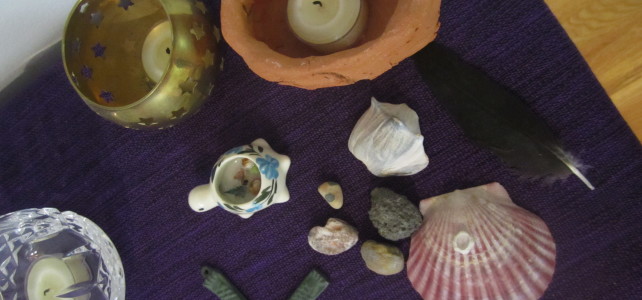
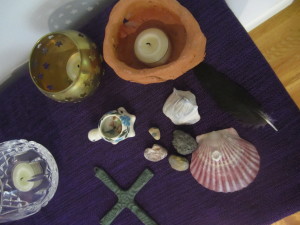
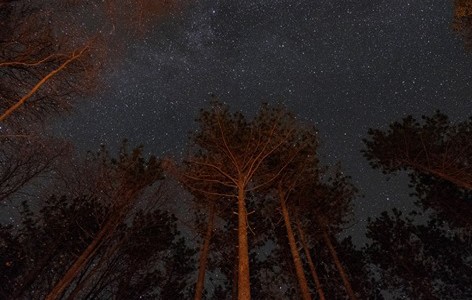



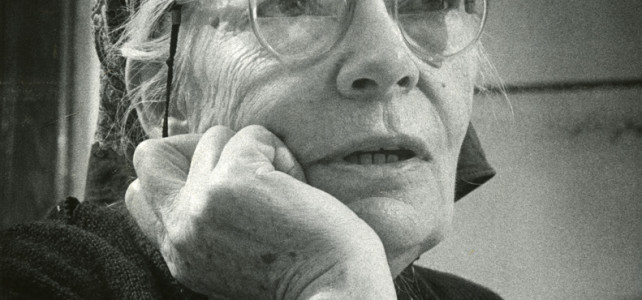
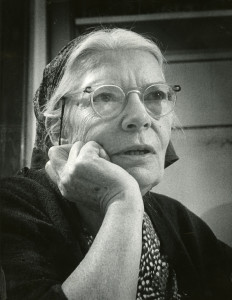
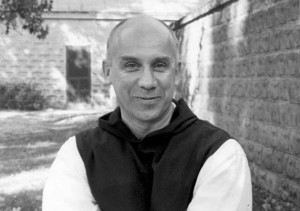 Pope Francis also recommended Merton’s openness to God in a contemplative style of prayer. Merton in the midst of a world immersed in “noise” of all types—digital, visual, aural—pouring out of players, electronics, out of the depths of our souls, calls us to quiet presence. For those who fill up every moment with activity and distraction, he says, “Be still. Listen.”
Pope Francis also recommended Merton’s openness to God in a contemplative style of prayer. Merton in the midst of a world immersed in “noise” of all types—digital, visual, aural—pouring out of players, electronics, out of the depths of our souls, calls us to quiet presence. For those who fill up every moment with activity and distraction, he says, “Be still. Listen.”